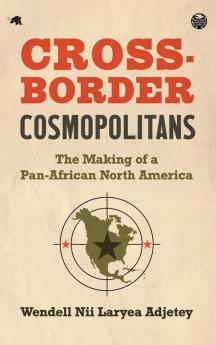English
Hardback
₹9690
₹12072
19.73% OFF
(All inclusive*)
Delivery Options
Please enter pincode to check delivery time.
*COD & Shipping Charges may apply on certain items.
Review final details at checkout.
Looking to place a bulk order? SUBMIT DETAILS
About The Book
Description
Author
<p>African American history from 1900 to 2000 cannot be told without accounting for the significant influence of Pan-African thought just as the story of twentieth-century U.S. foreign policy cannot be told without accounting for fears of an African World. In the early 1900s Marcus Garvey and his followers perceived the North American mainland particularly Canada following U.S. authorities' deportation of Garvey to Jamaica as a forward-operating base from which to liberate the Black masses from colonialism. After World War II Vietnam War resisters Black Panthers and Caribbean students joined the throngs of cross-border migrants to denounce militarism imperialism and capitalism. In time as urban uprisings proliferated in northern U.S. cities the prospect of coalitions among the Black Power Red Power and Quebecois Power movements inspired U.S. and Canadian intelligence services to collaborate infiltrate and sabotage Black organizations across North America. Assassinations of &#x201C;Black messiahs&#x201D; further radicalized revolutionaries rekindling the dream for an African World from Washington D.C. to Toronto to San Francisco to Antigua to Grenada and back to Africa. Alarmed Washington&#x2019;s national security elites invoked the Cold War as the reason to counter the triangulation of Black Power in the Atlantic World funneling arms clandestinely from the United States and Canada to the Caribbean and then to its proxies in southern Africa.<br/><br/>By contending that twentieth-century global Black liberation movements began within the U.S.-Canadian borderlands as cross-border continental struggles <i>Cross-Border Cosmopolitans</i> reveals the revolutionary legacies of the Underground Railroad and America&#x2019;s Great Migration and the hemispheric and transatlantic dimensions of this history.</p>
Delivery Options
Please enter pincode to check delivery time.
*COD & Shipping Charges may apply on certain items.
Review final details at checkout.
Details
ISBN 13
9781469669922
Publication Date
-10-01-2023
Pages
-422
Weight
-689 grams
Dimensions
-156x234x26.99 mm








